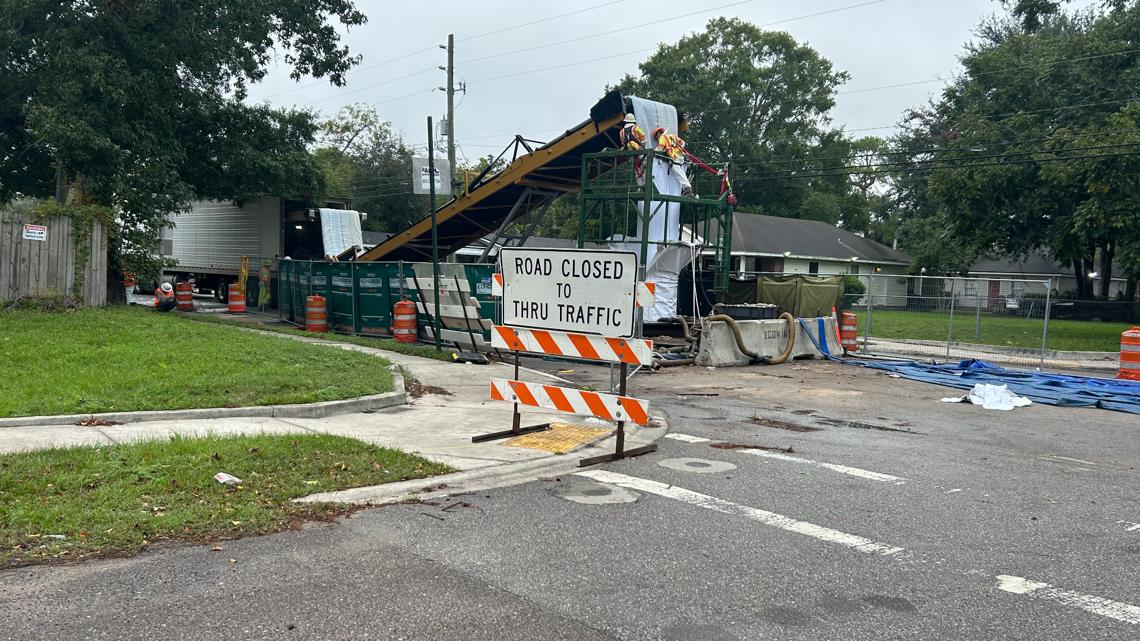JEA crews are replacing a massive underground pipe without tearing up the road.
JACKSONVILLE, Fla. — It’s hard to miss the sights and smells coming from JEA’s project currently taking over McMillan Street between West 13th Street and Pullman Avenue.
The utility company is utilizing state-of-the-art technology to repair a 42-inch pipe buried 20 feet underground, a method that is not only faster, but also better for the budget.
Despite an anticipated completion date of late September, JEA now says residents in the area should expect detours to remain in place through November.
Residents who live on or near 13th Street were notified early on that completion dates are subject to change, largely due to unpredictable factors like weather. These wastewater pipes haven’t been touched since the 1960s and are in urgent need of upgrades.
JEA says the project would take significantly longer using traditional methods. By avoiding deep trench excavation, they’re able to save time, money, and more disruption for the community.
Because crews don’t need to dig a full trench to replace the underground pipe, through traffic is still allowed, even though the road remains closed during construction. This has made detours less hectic for residents in the area.
“If you had to dig down that deep and get the whole run of pipe, it could take months and months more,” Myers Vasquez, spokesperson for JEA, told First Coast News. “This process itself will take about three to four weeks.”
As the project nears the finish line, JEA says this method of internal relining will help ensure long-term reliability for customers—and do so without the high cost of traditional open trench sewer main replacements.
“That kind of depth requires a lot of work, a lot of cost, and a lot of manpower,” Vasquez added. “Not to mention the risk of hitting water tables and other complications. With this process, we dig one access point, realign the pipe internally, and reconnect services, making it almost like new. It’s faster and far more cost-effective.”
The McMillan Street Sewer Improvement Project is part of a long-term effort to prevent failures in sewer mains and manholes. Pipes that haven’t been treated in over 60 years pose a growing risk not just of road closures and sewer backups, but also potential environmental damage.
This project helps ensure customer services aren’t interrupted and that future problems underground are avoided.
Vasquez said there’s still a lot more underground that needs to be maintained and improved throughout the city. In fact, JEA manages nearly 10,000 miles of water and wastewater lines, enough to stretch from Jacksonville to Seattle three and a half times.

